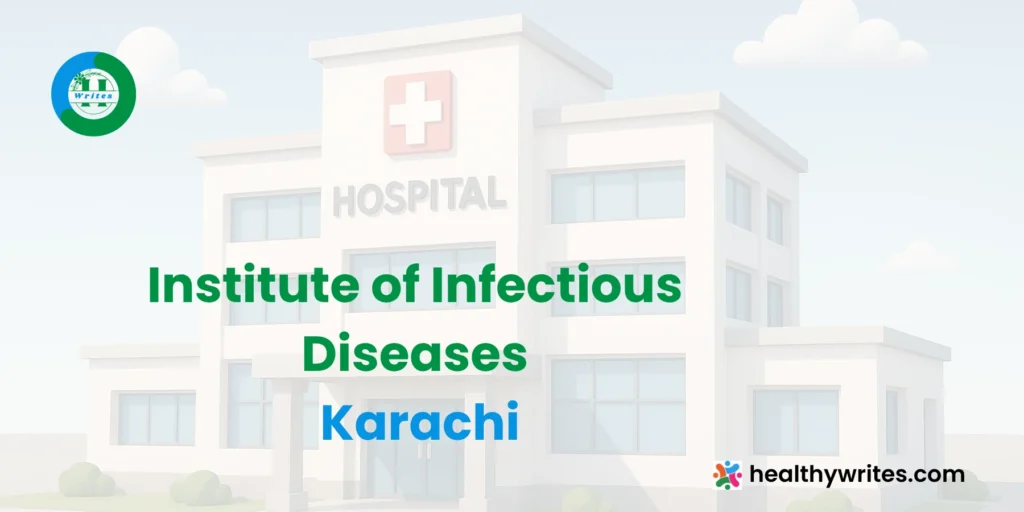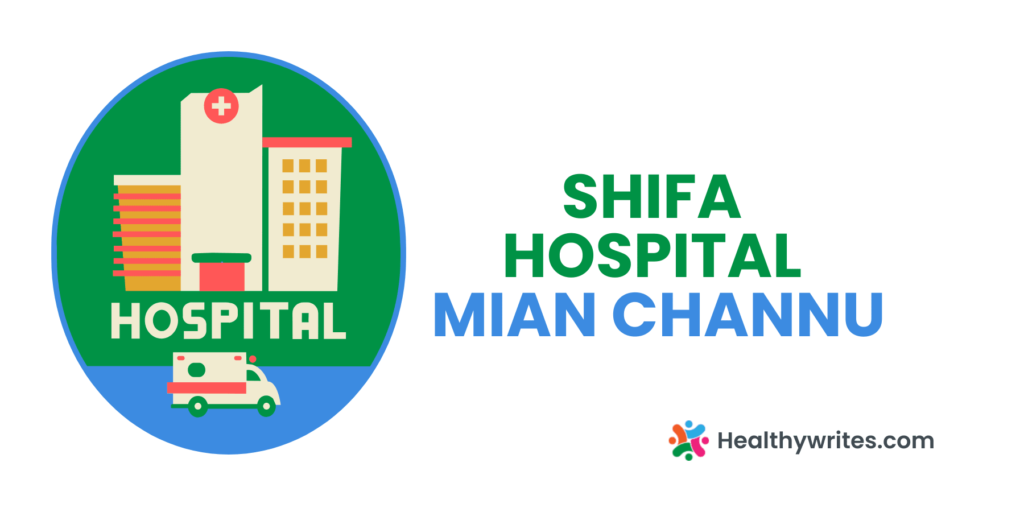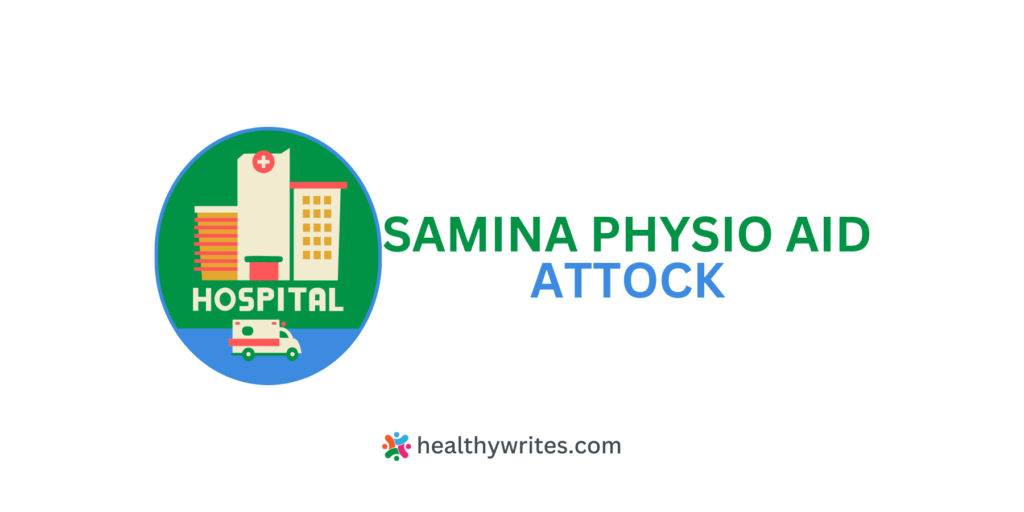The Institute of Infectious Diseases (IID) in Karachi is a specialized public-sector hospital dedicated to diagnosing, treating, and preventing infectious diseases. Serving as both a treatment and public-health hub, it plays a key role in managing outbreaks and providing affordable care to underserved communities.
📍 Location & Accessibility
Located near the city’s main public health corridors, the institute is accessible via public buses, rickshaws, private vehicles, and ambulances. The facility includes secure patient drop-off zones, wheelchair-accessible ramps, basic visitor parking, and clear directories to guide patients and visitors.
🏥 Infrastructure & Capacity
- Bed Capacity: Typically houses 100–150 beds, including isolation suites designed for airborne and contact-transmissible infections.
- Emergency & Triage: Equipped with a dedicated emergency triage area staffed 24/7 to assess and isolate suspected infectious cases promptly.
- Laboratories & Diagnostics: On-site laboratories offer microbiology, virology, PCR testing, serology, cultures, and antimicrobial susceptibility testing.
- Outpatient Clinics (OPD): Daily specialized clinics for conditions such as tuberculosis, dengue, malaria, hepatitis, HIV/AIDS, and emerging infectious outbreaks.
- Infection Control Infrastructure: Features separate respiratory wards, negative-pressure rooms, hand-hygiene stations, protective-gear zones, and waste management systems.
🩺 Clinical Services & Specialized Care
- Tuberculosis (TB) Clinic: Diagnosis, DOTS therapy, resistance testing, and long-term treatment monitoring.
- Viral Diseases Unit: Care for dengue, malaria, viral hepatitis, HIV/AIDS, influenza, and other viral infections.
- Bacterial & Parasitic Diseases: Treatment and control programs for typhoid, salmonella, cholera, malaria, and parasitic infestations.
- Infection Prevention & Control (IPC): Protocols for healthcare-associated infections, staff training, decontamination, and outbreak containment.
- Pediatric Infectious Care: Specialized outpatient and inpatient pediatric services for children with fever, dehydration, and communicable illnesses.
- Vaccination & Public Health Outreach: Community vaccination drives, health education sessions, and screening camps in high-risk areas.
✅ Strengths & Public Health Impact
- Focused Disease Expertise: Dedicated clinics and labs for major infectious threats in Karachi.
- Outbreak Response: Rapid assessment, isolation, treatment, and contact tracing protocols during dengue, measles, or hepatitis outbreaks.
- Affordable & Accessible: Services provided free or at nominal cost, ensuring equitable access.
- Training & Capacity Building: Conducts regular IPC workshops, clinician training, and fellowship programs.
- Laboratory Capability: Real-time PCR and culture services support timely diagnosis and outbreak control.
⚠️ Challenges & Areas for Improvement
- Bed Shortages: High demand during epidemics can overwhelm bed capacity and isolation wards.
- Equipment Upgrades: Procurement of advanced lab tools like real-time PCR machines and biosafety cabinets could improve efficiency.
- Infrastructure Expansion: Upgrading isolation rooms, waiting areas, and patient flow could enhance infection control.
- Human Resource Needs: Additional infectious disease specialists, lab technologists, and infection-control nurses would strengthen service quality.
📈 Recent Initiatives & Community Role
- Active involvement in city-wide dengue and measles outbreak management with field surveillance.
- Free vaccination campaigns in slum communities, schools, and health centers.
- Partnerships with public health bodies to train healthcare workers in infection control protocols and updates.
- Periodic community outreach focused on hand hygiene, vector control, and safe drinking water.
❓ FAQs – Institute of Infectious Diseases
Is it open for infectious emergencies 24/7?
Yes — the triage and emergency unit operates continuously for new suspected cases.
Are lab tests available on-site?
Yes — including PCR, cultures, serology, and sensitivity testing for major infectious diseases.
Is admission free?
Most services, including diagnostics and inpatient treatment, are free or heavily subsidized for low-income patients.
Can children be treated here?
Yes — pediatric patients receive specialized care for infections, with separate dedicated wards and clinics.
Does the institute handle outbreaks?
Yes — it is a central response hub for dengue, measles, hepatitis, TB, and other public health emergencies in Karachi.
🔍 Conclusion
The Institute of Infectious Diseases in Karachi serves as a critical pillar of the city’s public health infrastructure, offering focused clinical care, diagnostic capacity, and outbreak response. With increasing investment in lab upgrades, isolation facilities, staffing, and infrastructure, its role in controlling communicable diseases and serving vulnerable communities will continue to grow.





